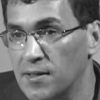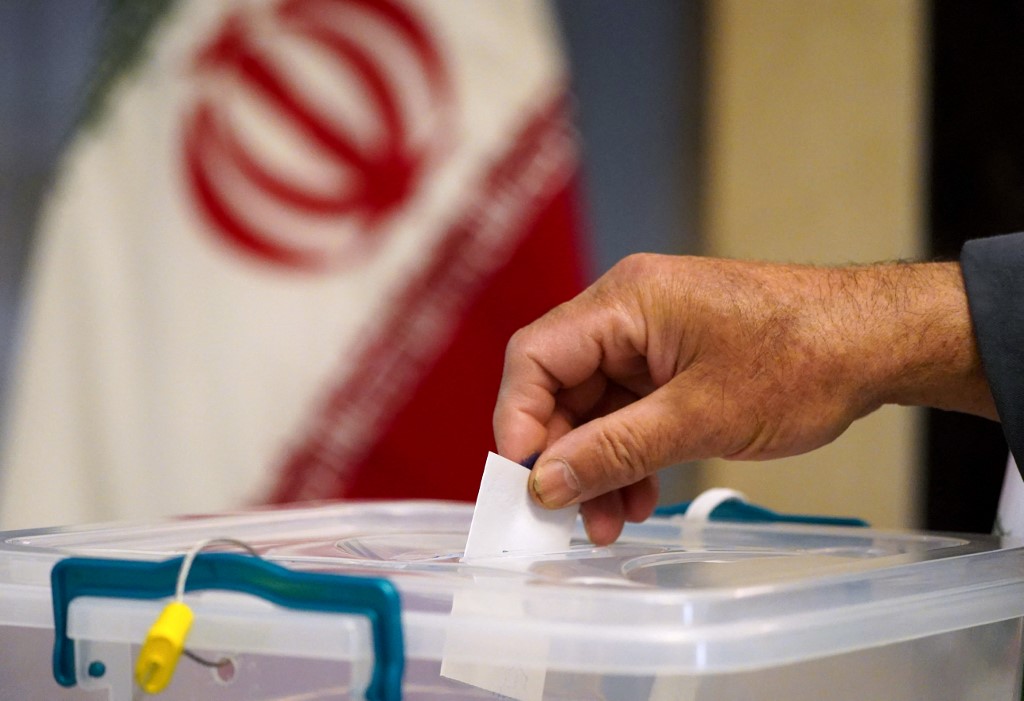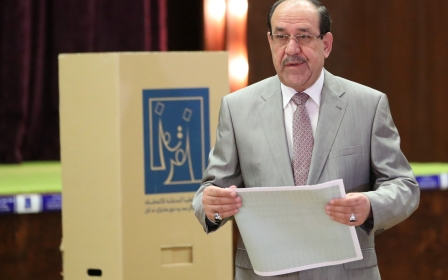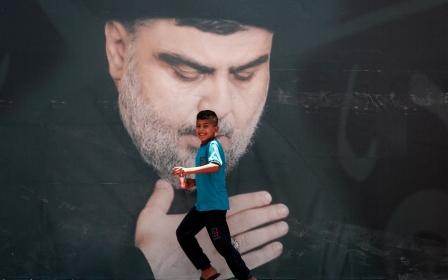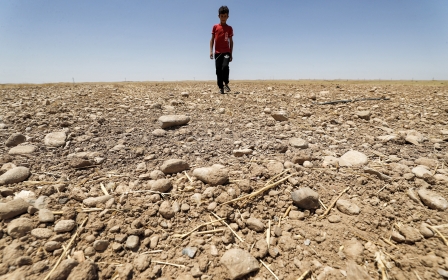Iraq elections: Why ruling parties fear the worst
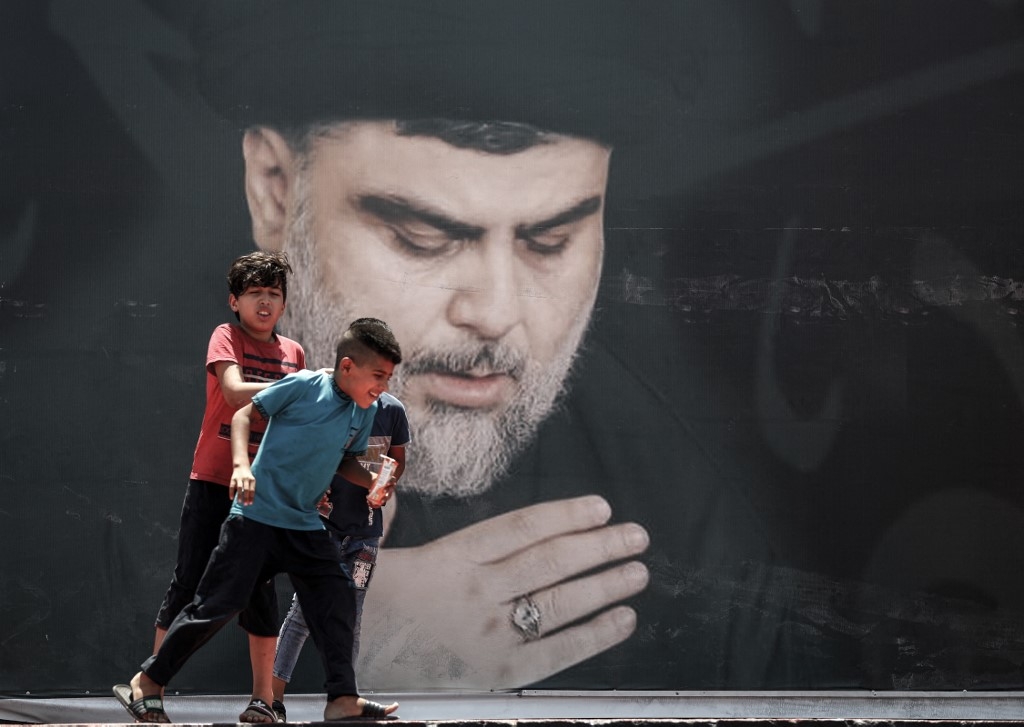
The upcoming election in Iraq is making the political class that ran the country aground very nervous.
Although the list of candidates in October's poll features no serious challengers with coherent plans to fix things or to replace the ruling parties, the likelihood is that, with moderately high voter turnout, these parties will not be renewed in the halls of parliament for another four-year term.
Sadr’s withdrawal is a far cry from the upbeat and confident statements made months earlier by some of his close aides
This is mostly why a major political player, Muqtada al-Sadr, said last month that he would not participate in the vote, citing reasons of corruption, failure of reforms and a disingenuous political class sacrificing the interests of Iraq. Invoking these reasons is the usual grandstanding of Iraqi politics.
The truth lies elsewhere: the realisation by Sadrists that they will fare poorly in the election.
Indeed, some sources close to Sadr talk about their movement getting about half the number of parliamentary seats they got in the 2018 parliamentary election, when their 52 seats made them the top vote-winners.
New MEE newsletter: Jerusalem Dispatch
Sign up to get the latest insights and analysis on Israel-Palestine, alongside Turkey Unpacked and other MEE newsletters
Sadr’s withdrawal is a far cry from the upbeat and confident statements made months earlier by some of his close aides, with claims that Sadrists would comfortably win a parliamentary majority, allowing them to form the next government. In fact, Sadr himself affirmed last November his willingness to participate if "it turns out that this election will lead to a [Sadrist] majority in the parliament and that the premiership" would be Sadrist.
Ruling parties worried
Sadr is not alone in boycotting the election. Ayad Allawi, the former prime minister and head of the “National Front”, announced his withdrawal, too. The National Dialogue Front, headed by former deputy prime minister, Saleh al-Mutlaq, also said it would not be participating in the upcoming vote.
The government responded by forming a committee to convince the boycotting parties and leaders to change their minds. Other political parties are trying, behind the scenes, to “postpone” the election to its regularly scheduled time, around April 2022. But what can change in six months? Almost nothing.
Two reasons explain why the Iraqi ruling parties are worried about the October election.
The first is the new election law, passed in December last year under pressure from protesters. This new law deprives these parties of a significant advantage: the ability of party leaders, who normally get lots of votes, to distribute their “excess” votes to party candidates who scored low. This allows these candidates to win parliamentary seats, while their small-party and independent competitors, who actually got more votes, would have no chance of winning seats.
This is why, since 2005, the majority of Iraqi MPs serving in parliament were there not because of the votes they won, but because of the votes their party leaders gave them. The system essentially rewarded big parties and linked MPs to party leaders, instead of those whose interests they were supposed to represent.
The second reason flows from the first one. The introduction, by the new law, of local, district-based voting where top vote-winners become MPs will make it very hard for many of the big parties to find local leaders or activists with high electability chances, ie liked by local voters yet still trusted by big parties.
Deep mistrust
Given the deep mistrust and anger towards big parties that the Iraqi electorate feels, as was clearly manifested in the October protest movement and the nationwide support it gained, the big parties, with a few exceptions, will have a lot to lose in the upcoming election if there is going to be a higher turnout than the modest 18 percent who turned out in the 2018 poll.
But a poor electoral showing for the big parties will not necessarily translate into serious future reforms or a better parliament, at least not in the short run. One main reason is the absence of new credible nationwide parties on the ballot. Most of the protest movement, with its nascent parties, have decided to boycott the election.
If a transparent election, with a relatively high turnout, is held in October, it is likely the next parliament will have more new independent and small-party faces, and less of the old-guard ideologues. But even a parliament with a significant number of new and good MPs will not be able to change the status quo.
The big parties are well-financed and experienced in parliamentary politics and manoeuvres. They may have a difficult time with the new parliament, but they will likely tame it through the usual carrot and stick methods.
With no big and coherent reformist bloc in parliament, the established parties can derail good law-making and oversight efforts. In addition, the power of these parties is massive and diffused throughout the different branches of the government, particularly the executive. Through this power, these parties will continue to have access to state resources and can well maintain the current patronage system that has for years forestalled serious reforms.
In the absence of sustained and large-scale street protests to deprive these parties of their ill-gotten sources of power and embolden the nascent political forces, which have been frustratingly slow in maturing, Iraq will continue its current plod from one crisis to another with no real solutions, while the root causes of the problems remain untouched.
The views expressed in this article belong to the author and do not necessarily reflect the editorial policy of Middle East Eye.
Middle East Eye delivers independent and unrivalled coverage and analysis of the Middle East, North Africa and beyond. To learn more about republishing this content and the associated fees, please fill out this form. More about MEE can be found here.


